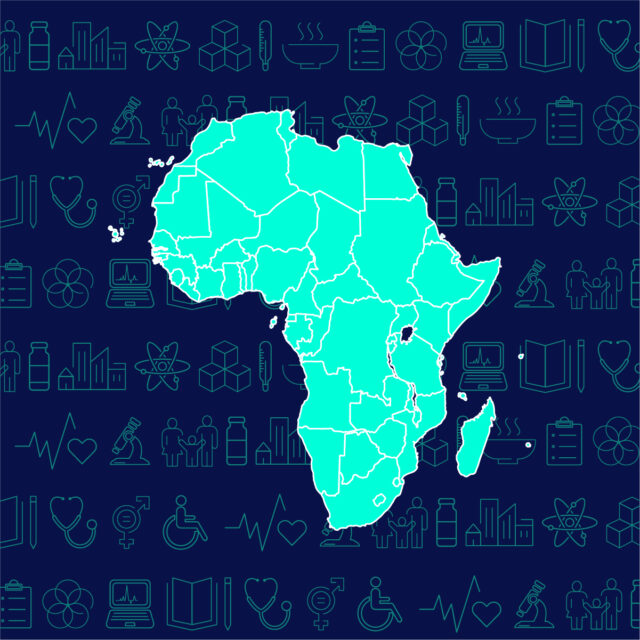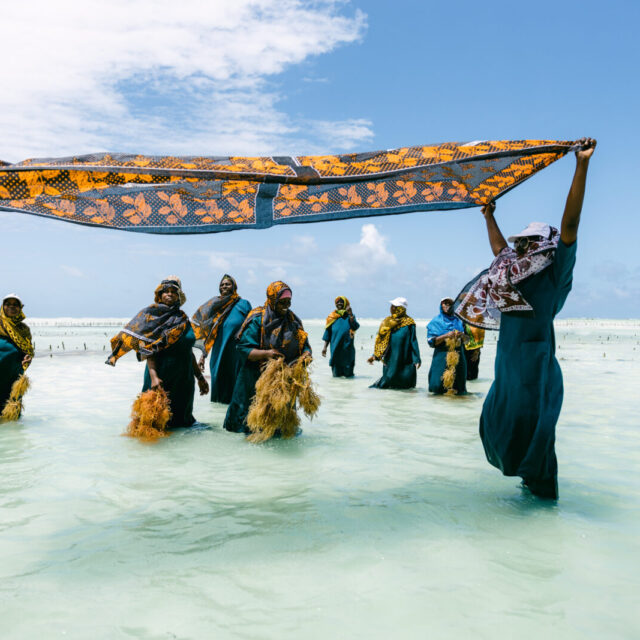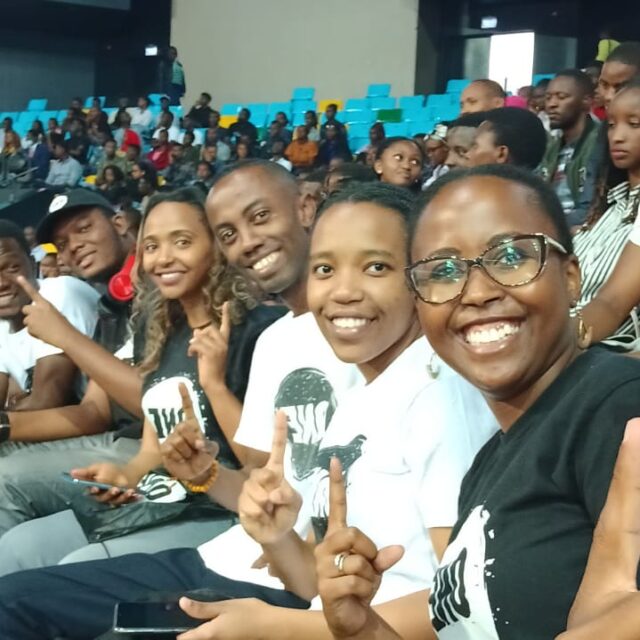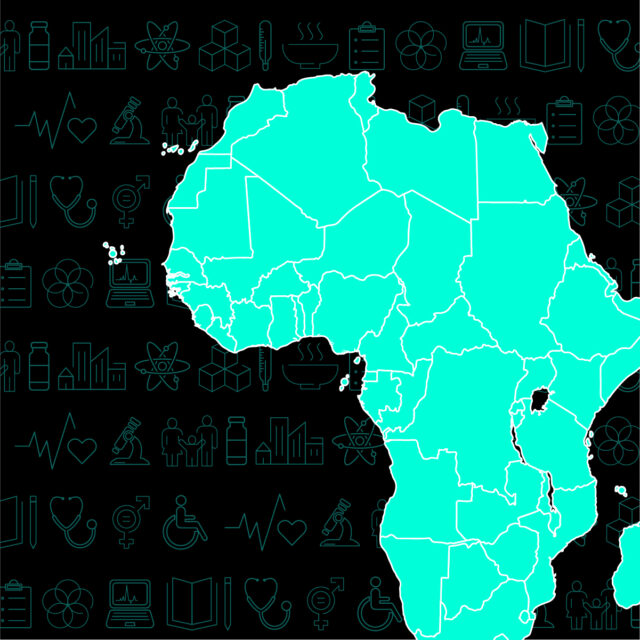Top news
COVID isn’t sexist, but the Aftershocks are…
Disproportionate: COVID-19 has killed more men than women, but the pandemic has hit women and girls harder. For a start, they are losing their livelihoods faster because they are more likely to work in hard-hit economic sectors such as hospitality, with the UN estimating that women’s employment is 19% more at risk compared to men.
Shadow pandemic: Nearly one in three women worldwide have been subjected to physical or sexual violence. Experts warn of a “shadow pandemic” with calls to helplines increasing five-fold in some countries last year, as intimate partner violence increased. Women and girls are particularly vulnerable during prolonged school closures or periods of unemployment. Meanwhile, the frontline groups dealing with gender-based violence are often excluded from humanitarian planning.
Health crisis: New data shows how the pandemic has diverted resources away from routine healthcare provision for women. In Europe and Central Asia, half of women have experienced difficulty in accessing family planning, while 60% of women have experienced difficulties seeing a doctor (we couldn’t find data for Africa). Some early estimates suggestCOVID could result in 56,700 additional maternal deaths.
Lost generation: School closures due to the pandemic could affect this generation forever, with researchers seeing lower test scores, a loss of key skills, and a higher risk of children dropping out. During Ebola, teen pregnancies rose sharply, and school enrollment among young girls dropped by 17%. ONE’s Lost Potential Tracker shows this year an additional 11.4 million more children won’t be able to read a simple sentence by age 10, with knock-on effects on future learning. Other data suggests 11 million additional girls may never return to the classroom.
Build back better?: Next week, the Generation Equality Forum will provide an opportunity to ensure that gender is at the heart of the post-COVID agenda. Billed as a follow-up to the landmark Beijing conference 26 years ago, the forum will deliver commitments towards achieving gender equality. Action coalitions — focused on gender-based violence, economic justice and rights, sexual and reproductive health, climate justice, technology and innovation, and leadership — will set an agenda for action for the next five years.
Show us the money: ONE will be tracking this agenda-setting event and using our voices to help translate these verbal commitments into funding and actual action. First stop is a gender-sensitive crisis response in how countries spend their allocations of Special Drawing Rights. This week, we also wrote to World Bank deputies asking them to prioritise the care economy in the upcoming replenishment of the International Development Association.
More news from the week
Something special: Speaking of SDRs, the IMF Board met this week to agree the $650 billion allocation we have been pushing for. We have new allies in rating agencies S&P and Fitch; both advocating for SDR recycling to improve fiscal sustainability. Who’d have thought?
Third wave rolling: COVID-19 cases continue to skyrocket across Africa with health systems quickly becoming overwhelmed amid severe oxygen shortages. The situation is especially dire in Uganda, where 200 legislators and parliament staff have tested positive for the virus in the last three weeks. Uganda introduced sweeping anti-coronavirus measures last week, following a 2,800% month-on-month spike in cases. We spoke to Gilbert Sendugwa of the Africa Freedom of Information Centre, who said that “action is needed as soon as possible to make sure that no more lives are lost due to lack of care.”
Out of stock: Of the 80 countries that rely on COVAX deliveries, “at least half of them do not have sufficient vaccines to be able to sustain their programmes right now,” the WHO warned this week. Uganda and Zimbabwe have run out of doses completely. To date, COVAX has been responsible for only 4% of the more than 2 billion shots administered globally, falling well short of its targets. Just this week, COVAX was forced to lower its targets for this year from 27% coverage of AMC countries’ populations to 23%. Why? Mainly because “rich countries behaved worse than anyone’s worst nightmares” by hoarding vaccine supplies.
Wrong crisis: When the European Council meets this week, they have the chance to do something truly remarkable by sharing their 2 billion surplus vaccine doses. Sadly, early indications suggest they are instead going to focus on spending more aid on limiting migration. The credibility of Ursula von der Leyen’s so-called “partnership of equals” with Africa is dropping faster than Dogecoin.
Strike three: Three crucial meetings took place in the past month that should have reversed the course of the pandemic: the G20 Global Health Summit, the World Health Assembly and the G7 Summit. And yet, following the meetings, we are left with “an enormous gap between the commitments made and the action required” to end the pandemic. So said the Global Preparedness Monitoring Board this week, calling on national leaders to urgently share vaccine doses equitably, to increase vaccine production capacity, to fully fund COVAX and ACT-A, and to negotiate an international agreement on pandemic preparedness and response.
Taking control: The World Bank and the African Union are teaming up to vaccinate 400 million people in Africa through the Africa Vaccine Acquisition Task Team (AVATT). South Africa will establish the first COVID-19 mRNA technology transfer hub in a boost to train manufacturers and provide them with the necessary licenses. Leaders from the global south convened the Summit for Vaccine Internationalism, dubbed the “polar opposite” of the failed G7 summit. Officials from middle-income countries committed to share COVID-19 vaccine technology, increase regulatory capacity of low-income countries, and pool manufacturing capacity.
The numbers
- 25,352 Average daily confirmed cases in Africa (week to 23 June, up 25% on the previous week).
- 378,726: Average vaccines administered daily in Africa (week to 22 June, down 40%).
- 57%: COVID-19 patients with severe symptoms in Ugandan hospitals.
Other reads
-
- Why are COVID-19 vaccines going to waste in some African countries? ONE’s Rasna Warah explores how lacking infrastructure and vaccine hesitancy are affecting vaccine roll-out plans.
- African countries are facing a growing risk of debt defaults. ONE’s David McNair spoke to Devex about the need for emergency relief, arguing that “we need much more ambition in terms of providing a fiscal stimulus package for Africa.”
- The situation in Ethopia’s Tigray region is deteriorating, with widespread reports of human rights abuses and food insecurity. Rasna Warah has the details in her latest blog.
- Governments in Africa must act on vaccine absorption before new stock arrives. The Tony Blair Institute for Global Change outlines how a combination of factors have led to low vaccine absorption rates in many countries, and sets out what can be done about it.
- A beautiful idea? The Lancet looks at how the COVAX scheme has fallen short of its goal to ensure equitable access to COVID-19 vaccines.
- What happens when COVID-19 collides with HIV infection? Gavi looks at the evidence that people living with HIV may be at greater risk of dying from COVID-19.
- The pandemic won’t be over until it’s under control around the world, and G7 leaders must recognise that they can’t donate their way out of the pandemic. So argue Chelsea Clinton and Achal Prabhala in The Atlantic.



